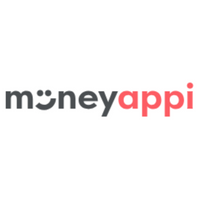How HR can make financial wellbeing work for every generation
The modern workplace is more diverse than ever, yet many financial wellbeing programmes remain stuck in as outdated models, failing to meet the varied needs of employees.
HR leaders who understand this will be better equipped to foster engagement and improve wellbeing outcomes among their employees.
Financial worries differ
From Gen Z starting their careers to millennials juggling mortgages and student loans, and Gen X approaching retirement, financial priorities vary dramatically.
A 2024 PwC survey found that nearly half of employees report money worries affecting their work performance, but the nature of those worries depends heavily on age and life stage. Younger employees often struggle with student debt and building emergency savings, while millennials face the costs of family life and home ownership.
Gen X employees are concerned with paying off mortgages, saving for children’s education, and preparing for retirement, while Baby Boomers focus on managing retirement income and healthcare costs. A generic programme that concentrates on pensions, for example, may resonate with Gen X and Boomers, but risks leaving younger employees disengaged.
Work and home life distinction
The rise of hybrid working has added another layer of complexity. While flexibility can benefit employees, it has also blurred the boundaries between work and home life, making financial stress more visible.
Combined with caring responsibilities and the pressures of rising living costs, these factors highlight the need for financial wellbeing initiatives that reflect real-life challenges.
Citizens Advice reported that over 10 million people in the UK were behind on household bills in 2024, demonstrating just how widespread financial strain has become.
For HR teams, personalisation has become the key to genuine engagement. Data-driven insights and digital tools allow employers to identify the unique needs of their workforce and provide tailored support.
Strong personalised interventions
Segmented programmes, whether addressing student debt, childcare costs, or retirement planning, ensure that employees receive relevant resources. Digital tools, from budgeting apps to on-demand pay platforms, can empower employees to manage their finances proactively.
Evidence suggests that personalised wellbeing interventions tend to deliver stronger engagement and outcomes than generic programmes.
UK companies are already seeing the benefits of this approach. For example, a mid-sized technology firm in London introduced a personalised financial wellbeing programme, combining one-to-one coaching, digital budgeting tools, and tailored webinars.
After six months, HR reported a 40% increase in engagement with financial resources and a measurable improvement in employees’ confidence in managing debt and savings. The company also noticed a reduction in absenteeism linked to financial stress, demonstrating the business value of targeted support.
Implementing these changes does not need to be complicated. HR teams can start by gathering and analysing employee insights to understand financial concerns across the workforce.
Offering a range of education and support options, from webinars to digital resources, ensures that employees at every stage of life have access to practical guidance.
Technology can further enhance engagement, allowing employees to choose the tools most relevant to them while giving HR teams the aggregated data they need to refine programmes continuously.
Regular review and adaptation are critical, as financial pressures evolve over time. Clear and tailored communication is also essential: personalised messaging helps employees understand which support is most relevant to their situation, whether it’s student debt, mortgage planning, or retirement preparation.
Looking ahead
HR leaders must recognise that workforce diversity will continue to grow, and financial wellbeing will remain a key factor in engagement, retention, and productivity.
Emerging trends, such as AI-driven financial planning tools and more flexible benefits offerings, provide new opportunities to meet employees’ individual needs. Programmes that embrace personalisation, supported by data and digital tools, can create a workplace culture where employees feel genuinely supported at every stage of life.
In an era of rising living costs, hybrid working, and generational diversity, recognising that one size does not fit all is not just good practice; it is essential for fostering engagement, loyalty, and overall wellbeing.
Supplied by REBA Associate Member, Moneyappi
Proactive Financial Wellbeing, made simple, measurable, and for everyone.








